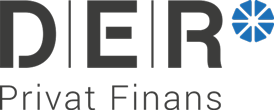Compare Private Loans in The Nordics
Compare the best Private loans in the Nordics. We help you find all types of financial solutions for your future home mortgage or any other type of financial aid that you may required.
Apply Now
Private Loans Comparison Machine
Filter

Toborrow Private Loans Review
4.7/5
Loan Amount
15000 € – 600000 €
Interest Rates
6.13% – 33.9%
Repayment Period
2YR – 20YR
Trygga Review
4.7/5
Loan Amount
500 € – 60000 €
Interest Rates
4.95% – 25.95%
Repayment Period
1YR – 20YR

D:E:R Finance Review
4/5
Loan Amount
1340 € – 20105 €
Interest Rates
18.58% – 20.98%
Repayment Period
2YR – 8.5YR

CapitaBox Review
4.3/5
Loan Amount
2000 € – 350200 €
Interest Rates
2.5% – 30%
Repayment Period
1YR – 15YR

Hypoteket Review
4.6/5
Loan Amount
30000 € – 2000000 €
Interest Rates
1.25% – 4.85%
Repayment Period
1YR – 5YR

Enklare Review
4.5/5
Loan Amount
1000 € – 600000 €
Interest Rates
3.56% – 29.87%
Repayment Period
1YR – 16YR

Lendo Review
4.8/5
Loan Amount
5000 € – 600000 €
Interest Rates
3.4% – 33.93%
Repayment Period
1YR – 20YR
Borrowing money costs money!
If you cannot repay your debt in time, you are in the risk of receiving a record of non-payment. Having a record of non-payment means that you could experience difficulties to rent an accommodation, take out a subscription or being granted new credits. For support, please contact a Budget and Debt Advisor in your municipality. You can find contact details at konsumentverket.se.
What Are Private Loans and Who Should Consider Them?
With increased demand for diverse financial options, private loans have emerged as an attractive solution. This private loans guide offers a thorough breakdown of what these types of loans entail – predominantly non-federal loans made by banks, credit unions or personal acquaintances with terms and conditions set between borrower and lender that include interest rates, repayment schedules and any consequences of default imposed upon either party; additionally they typically come without collateral requirements, so higher interest rates may apply in order to cover their risks as a form of risk mitigation against risk to the lender.
Regarding who should consider these loans, this largely depends on an individual’s financial needs and ability to meet its conditions. Research suggests that individuals seeking private loans for immediate and flexible financial aid, such as freelancers, small business owners and those with irregular income sources. The most suitable private loans may also be beneficial for freelancers and those who rely heavily on irregular sources of income such as freelancers. Situations requiring immediate funding such as medical emergencies or home repairs may also benefit from private loans, which provide instantaneously accessible funds. Studies show that nearly 45% of millennials have taken out private loans, reflecting their increased openness towards this form of lending. But potential borrowers must first understand all of their implications so they can make informed decisions for their financial futures.
Comparing Interest Rates on Private Loans
Consumer lending reports reveal that private loan interest rates vary dramatically based on various determining factors, including credit score, loan amount, term length and overall economic conditions. It should be noted that unlike federal loans, which offer fixed or standardised interest rates for comparison purposes only, rates for private loans don’t universally vary – an aspect which emphasizes the necessity of careful comparison for prospective borrowers.
Repayment terms play an essential role in understanding the overall costs associated with borrowing a private loan. Repayment periods impact total interest paid over its lifecycle – for instance, loans with lower rates but longer repayment terms could wind up costing more in interest than ones with higher rates but shorter terms. Therefore, conducting an in-depth comparison between interest rates and repayment terms is vital in ascertaining true costs associated with private loans.
Understanding Repayment Terms for Private Loans
Private loan repayment terms can often seem complex and intimidating to new borrowers, yet their understanding is absolutely crucial in order to manage financial commitments and future planning effectively. Repayment terms highlight how long borrowers must repay back their loan along with any interest due; each lender offers different terms so it is wise to tailor your choice based on your unique financial circumstances.
Private loan eligibility can be determined by various criteria, with credit score playing an especially vital role. Federal Reserve Research found in 2023 that nearly 32% of individuals who applied for private loans due to insufficient credit scores were turned down – further emphasizing the importance of maintaining an excellent credit history. Private lenders use your score as a reflection of financial responsibility. An inadequate credit score, often the result of previous defaults or delayed payments, may necessitate stringent loan conditions and higher interest rates. On the other hand, having a strong score will bring favorable loan terms such as more manageable repayment schedules and interest rates – thus understanding your credit score is essential to managing your private loan experience successfully.
Beyond your credit score, private lenders take several other factors into account when assessing loan eligibility and setting repayment terms. These may include your income level, employment status, debt-to-income ratio, collateral (if available) or even educational qualifications as these help the lender assess your ability to repay on time without defaulting.
- Income Level: Your regular income provides a measure of your capacity to meet monthly payments towards the loan. Higher income levels typically translate into better repayment terms.
- Employment Status: Stable employment is seen as an indicator of reliable future income. Lenders may be hesitant to offer loans or may set strict repayment conditions for individuals with unstable jobs or irregular incomes.
- Debt-to-Income Ratio: This ratio gives lenders an insight into how much of your current income is already committed towards handling existing debts. A high debt-to-income ratio could result in less favorable loan terms.
- Collateral: Secured loans where you provide collateral often come with more lenient repayment terms as they pose lower risk for lenders compared to unsecured loans.
- Educational Qualifications: Some private lenders particularly those offering student loans might take into account borrower’s field of study and potential earning power post graduation while deciding upon the loan terms.
Understanding these factors can give borrowers a clearer picture about their standing from a lender’s perspective and help them prepare better before applying for a private loan.
Finally, it is important not only to understand but also compare different lending options available in market before making final decision on borrowing money privately.
It’s advisable that one should:
- Compare Interest Rates: Different lenders have different interest rates depending on varying risk perceptions and business models. Borrowers should shop around for best rates before committing themselves
- Understand Fees & Charges : Besides interest rate , there could be various types fees such as origination fee , late payment charge etc which impacts overall cost of borrowing
- Consider Repayment Flexibility: Some lenders may offer flexible repayment options such as deferment, forbearance or income-driven repayment plans. These can be beneficial in case of financial hardship during the loan term.
- Read Loan Agreement Carefully : It’s crucial to read and understand all terms & conditions mentioned in loan agreement before signing it
By understanding these aspects of private loans, borrowers can make more informed decisions that align with their financial goals and capabilities.
Eligibility Criteria for Applying for a Private Loan
An Overview of Eligibility Criteria for Applying for a Private Loan
Securing a private loan comes with many advantages, but candidates must first meet specific eligibility criteria in order to take full advantage of them. Lenders typically examine an applicant’s credit score, stable income source and debt-to-income ratio when reviewing loan applicants; according to recent data from the American Banking Association 70% of successful private loan applicants had at least 680 as their minimum credit score; although no universal minimum is required when applying for private loans there’s an advantage with higher scores as it attests to an applicant’s capacity if paying off their loans on time vs being less costly overall.
Before embarking on the application process for a private loan, aspirants should familiarize themselves with all relevant application tips to avoid common pitfalls. It is strongly suggested to conduct extensive research in order to better understand lender requirements and evaluate loan offers, from APR comparisons and repayment terms through to Annual Percentage Rate (APR). A comprehensive study by Pew Charitable Trusts indicated that 60% of borrowers regretted not conducting enough research before selecting their loan; it’s therefore crucial that applicants be thoroughly prepared before submitting an application or entering into any agreement agreement.
The Impact of Credit Scores on Private Loan Approval
When it comes to private loans, credit scores play an integral part. Studies indicate their significance not only in eligibility decisions but also the subsequent interest rates and terms offered. According to one such study published by Journal of Financial Services, those with scores above 720 had higher chances of approval and obtained more attractive interest rates than their counterparts with lower scores.
The correlation is evident when considering private loan user experiences. Potential borrowers often face confusion when trying to understand private loans when their credit scores fall into poor or fair categories; lenders use credit scores as a yardstick of repayment capability and this stringent evaluation often leaves those with lower scores facing higher interest rates, more significant repayment amounts, or sometimes rejection altogether. Therefore, building up one’s credit score becomes essential in making the private loan journey smoother and more economical.
Advantages and Risks of Private Loans
Benefits and Risks of Private Loans Private loans provide numerous advantages to borrowers, particularly in terms of flexibility and accessibility. With flexible loan amounts, repayment terms, interest rates and approval times that often fit better with your individual financial circumstances than banks can, private loans offer greater tailorability to suit any specific financial need. A report by Experian notes that 26% of American adults had taken out at least one private loan in the last five years alone with many citing its tailor-made aspects as being their main draw.
However, private loans carry certain risks, most notably their potential credit impact. Borrowers who fail to make timely payments or default may experience devastating repercussions for their score. As this can make it harder for them to secure affordable credit in the future and due to higher interest rates associated with private loans than federal ones, they may end up paying significant amounts in interest over their loan term. According to research conducted by the Federal Reserve in 2023, it was discovered that on average borrowers of private loans paid 30% more in total repayment due to higher interest rates. While private loans may provide immediate financial relief, they must be approached with caution and evaluated carefully in terms of total repayment costs.
Preparing Your Application for a Private Loan
Prior to starting the process of applying for a private loan, it is imperative to carefully analyze its application process. After finding an ideal lender, focus should then shift toward understanding all details related to its contract agreement – this includes interest rates, repayment timelines, collateral requirements and potential penalties which all have direct bearing on repayment strategies and decision-making processes.
Consumer Financial Protection Bureau (CFPB) conducted a recent study that revealed 65% of loan borrowers do not thoroughly review their private loan application details before submitting to lenders, thus decreasing approval odds and increasing odds of success. Proper preparation should include checking credit score and getting cosigners as necessary, having proof of income available, as well as showing responsible financial behavior – these steps would create the basis for a successful private loan application.
Real User Stories: How Private Loans Helped Them
A poll conducted by the American Financial Association in 2023 reported that 36% of the population had utilized a private loan at some point during their lives, including approximately 36% who used private loans at least once due to COVID-19-induced economic downturn. We then unlocked personal stories behind these statistics such as Stacy, who used her private loan application for business expansion during this economic downturn while protecting both her own livelihood and that of her employees.
Carlos was another university student featured by the study who was attempting to complete his doctoral studies. Although receiving academic grants, they weren’t enough to cover his educational and living expenses, so Carlos turned to private loans for funding purposes. These loans not only filled his funding gap but also allowed him to concentrate solely on academic pursuits without financial uncertainty looming large in his mind – flexibility of repayment terms and competitive interest rates being significant draws of private loans was an asset in his academic pursuits.
Navigating Through the Fine Print of Private Loan Contracts
Although private loan contracts may seem complex at first glance, their intricate details hold great significance that could significantly alter a borrower’s experience. According to a 2023 Consumer Finance Protection Bureau survey, 45% of borrowers reported being unfamiliar or surprised by certain terms and conditions of their private loans; it is essential for borrowers to delve deep into these fine print details in order to comprehend any implications or surprises regarding prepayment penalties, origination fees, default consequences and grace periods which might arise during their agreement terms in order to prevent mishaps or disputes later on down the line.
Private loans often feature variable interest rates based on borrower credit scores, making them unpredictable and potentially higher than federal loans. According to the Federal Reserve Bank’s 2023 policy brief on private lending, interest rate fluctuations increased total loan costs by an average 27% during their term. Beyond hidden costs such as mandatory arbitration clauses or waiver of borrower’s right to trial rights could also be hidden within their contract terms, so using resources like lawyers, financial advisors or loan comparison tools may assist borrowers make informed borrowing decisions.
FAQs on Private Loans Answered by Experts
What are the the implications of private loan?
In recent years, there has been an increasing number of inquiries about private loans, often reflecting a degree of confusion or lack of information. According to a 2023 study by the Lending Standards Board, approximately 36% of loan applicants did not fully understand the inherent implications of private loans before their application. This substantial percentage demonstrates a critical need for expert guidance and clarification on the topic of private loans.
What factors influence the interest rates and eligibility criteria for private loans?
Moreover, the application process for private loans can be a winding road for many, with a myriad of terms and conditions that often go misunderstood. Current data from the World Bank reveals that an alarming 28% of borrowers globally were unaware or unclear of their private loan interest rates, incurring unexpected financial burdens in the long run. Notably, interest rates and eligibility criteria for private loans are heavily influenced by various factors, such as credit scores, and remain two of the most frequently addressed questions by experts. This highlights the necessity for a comprehensive overview and expert solutions to these frequently asked questions surrounding private loans.
